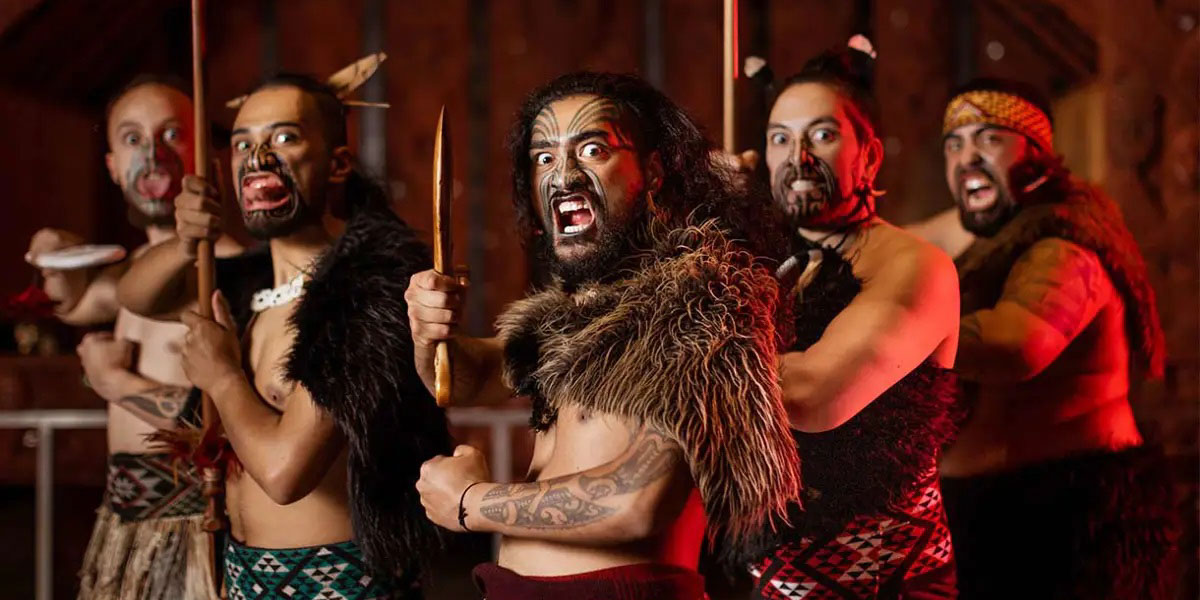Kapa Haka is the term for the performing arts of the Maori people in New Zealand. In order to create a great Kapa Haka, the Maori have to pay attention to every little detail like songs, dances, and even facial expressions.
What Actually Kapa Haka Is?
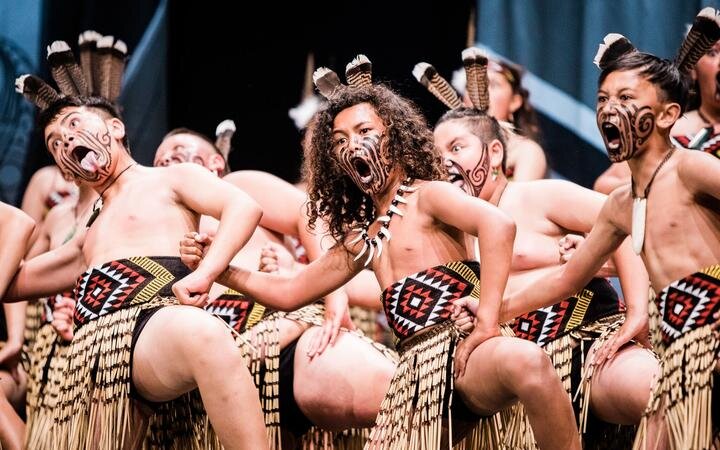
It is the term for the performing arts of the Maori people. “Kapa” is to assemble a group, and “haka” is to dance. A “Kapa haka” performance call for a powerful and emotional combination of dancing, singing, and chanting.
Generally, it is put on stage by cultural groups on the marae on special occasions. During the performance, you’ll see many compositions. They’re ranging from choral singing and chants to ferocious war dances and graceful action songs. Moreover, there are performances that include professional demonstrations of conventional weaponry.
So, while visiting New Zealand, you should take the chance to enjoy the excitement of kapa haka.
The Purpose Of Kapa Haka
To Maori people, Kapa haka is a certainly meaningful and sacred tradition. Its purpose is to represent and showcase their origin and ethnic Polynesian identity via song and dance.
As a result, there is still a Kapa Haka performance in Maori ceremonies today. They perform it in order to welcome guests and show the importance of the celebration.
Factors That Form A Perfect Kapa Haka
As we mentioned above, there are various factors that form a perfect Kapa Hapa. So, let’s find out what they are together!
Waiata-a-ringa – Kapa Haka Songs
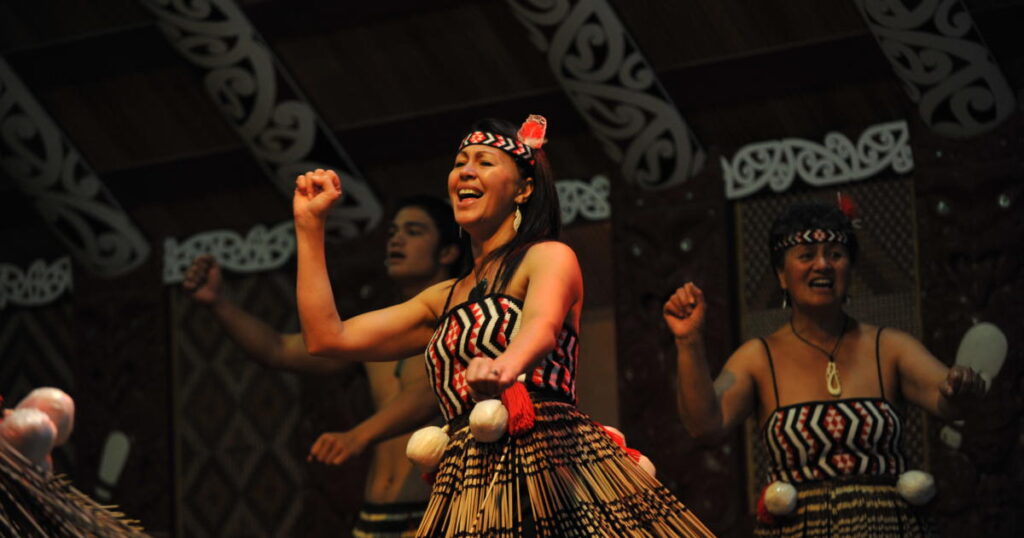
In Kapa Haka action songs, waiata-a-ring, for example, the lyrics are often backed by symbolic hand gestures. When the performers flutter their hands fast, it’s the “wiri” movement. This movement symbolizes heat waves, shimmering waters, or a breeze rustling the leaves.
Depending on a certain context, Waiata-a-ringa can be flirtatious, fun, or serious.
Haka – The Maori War Dance
The haka is a ceremonious challenge or war dance of the Maori. When performing haka, the Maori want to show their pride, unity, and strength.
Actions consist of foot-stomping, tongue-protruding, and rhythmic body-slapping to go with loud chants. The poetical tales of haka often describe ancestors and historical events. Performers may include customary spears, such as Patu(clubs) and Taiaha (spear-like weapons), in their haka.
Poi – Charming Dance
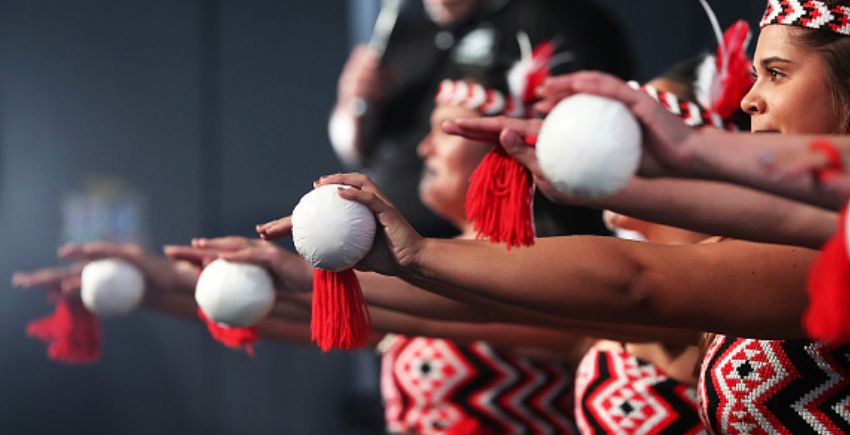
This is a kind of dance where each performer twists one or more poi in unison with the others. Then, when they want to change direction, they have to strike the ball to create noise that makes a percussive rhythm.
As far as we know, most poi dancers are women. And a great performance has to powerfully deliver a sense of grace, charm, and beauty.
Pukana
Pukana is facial expressions. It’s certainly an important factor of Kapa haka. A pukana helps highlight a moment in a song. Also, it shows the performer’s passion or ferocity.
When performing pukana, women have to open their eyes wide and jut out their chin. For men, widening their eyes and stretching out their tongues or baring their teeth. Though these facial expressions may be fierce, they’re not actually a sign of aggression. In contrast, it shows deep-felt and strong emotions.
Where To See A Kapa Haka Performance In New Zealand
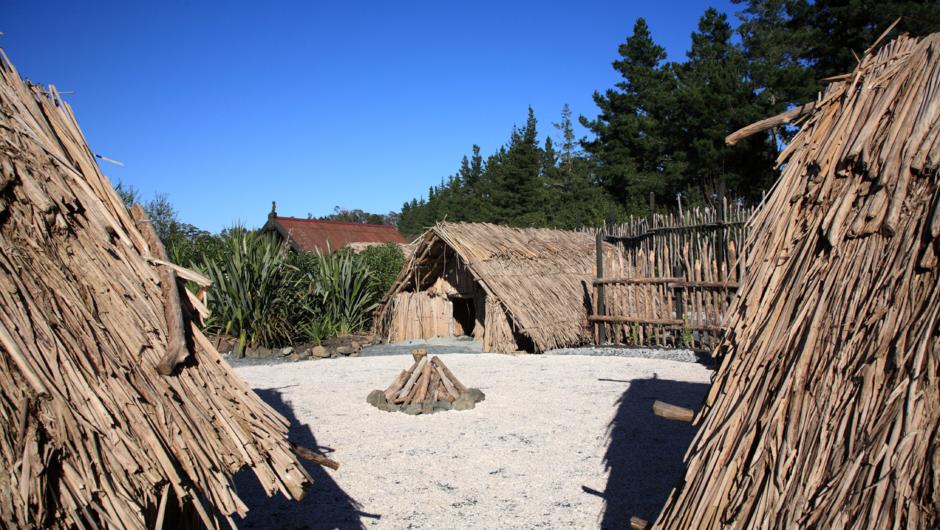
Here are some places where you can have this Maori traditional performance.
In the North Island:
- Rotorua – This site consists of many Maori cultural centers. For example, Mitai Maori Village, Whakarewarewa Thermal Village, Tamaki Maori Village, Te Puia, etc. So, when coming to Rotorua, you’ll have an authentic Maori cultural experience
- Auckland Museum – Did you know that Auckland Museum has the largest Maori and Pacific Island collections in the world? Also, it’s the only venue in Auckland to offer daily Kapa Haka performances.
- Te Hana Te Ao Marama – This place has a 17th-century Maori Village. As a result, it’s perfect for a Kapa Haka performance that you long for.
In the South Island:
- Ko Tane – Unfortunately, Ko Tane is the only site in the southern region to showcase this Maori dance. But don’t worry, you still have a chance to experience various forms of the Kapa Haka here.
Related Posts You Can Read:
Exploring the Fascinating Maori Culture Of New Zealand
